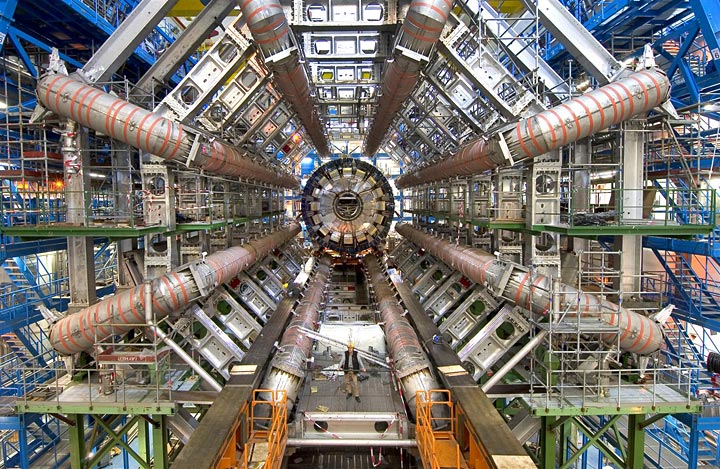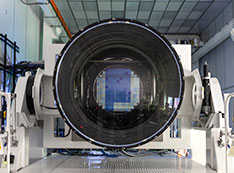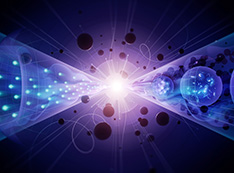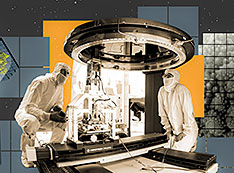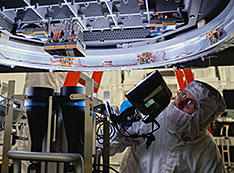Statement on the Particle Physics Project Prioritization Panel (P5) Report to the High Energy Physics Advisory Panel (HEPAP)
May 22, 2014
Doon Gibbs, Laboratory Director, Brookhaven National Laboratory
Physicists serving on the Particle Physics Project Prioritization Panel (P5)—a subcommittee of the High Energy Physics Advisory Panel (HEPAP) that advises the U.S. Department of Energy and the National Science Foundation—today submitted a report with recommendations on the future of the field. The research described—which seeks to understand the most elementary constituents of matter and the forces that cause them to interact—impacts our understanding of the universe and its evolution, composition, and laws.
This exploration uses state-of-the-art instrumentation, computation, and accelerator science and technology, and engages scientists from around the world. It also drives technical innovation that impacts our quality of life through the development of new technologies for industry, advances in medical imaging, approaches to high-performance computing, and more.
The new P5 report, identifying the most important areas of research in the field and how to pursue them, was issued after extensive consultation with the particle physics community. It is part of an in-depth long-range planning process, the previous P5 report having been issued in 2008. The new report sets the “state of the science” and priorities for funding for the next decade.
The Panel was assigned the difficult task of balancing the new opportunities available to the field with the constraints of projected budgets. The committee should be commended for having found a good balance, and the community is now looking forward to implementing the recommendations.
The report emphasizes the important opportunities for the field, which include:
- Use the Higgs boson as a new tool for discovery
- Pursue the physics associated with neutrino mass
- Identify the new physics of dark matter
- Understand cosmic acceleration: dark energy and inflation
- Explore the unknown: new particles, interactions, and physical principles.
The report also identifies the need to support enabling technologies in accelerator, detector, and computing sciences.

(L to R) Brookhaven's Long Baseline Neutrino Experiment team, physicists at the Accelerator Test Facility, and Design Engineer Justine Haupt with equipment she designed for testing LSST's electro-optic sensor modules.
Brookhaven National Laboratory is engaged in research directly linked to the majority of these scientific endeavors and enabling technologies:
- Brookhaven is the U.S. host lab for the ATLAS experiment at the Large Hadron Collider.
- Brookhaven has a long history in neutrino physics and a strong involvement in the intermediate and the long-range neutrino program at Fermi National Accelerator Laboratory.
- Brookhaven is contributing significantly to both the construction and the science of the Large Synoptic Survey Telescope project.
- Brookhaven conducts essential research on the science and technology needed for future accelerators and experimental detectors, makes major contributions in high-throughput computing to manage the large data sets that high-energy physics experiments generate, and leads the development of the theoretical framework on which these experiments are based.
The proposed plan also recognizes the importance of optimizing the program in the international context.
Our program at Brookhaven is well aligned with the report’s main recommendations. Though great progress has been made in high-energy physics since the last P5 report—including the discovery of the Higgs boson, new details about neutrino masses, and three Nobel Prizes awarded in the field—these discoveries are not stopping points but rather open new doors to exploring and understanding our universe. As this report illustrates, even with challenging budgets, there are significant opportunities for fundamental advances if we make the right strategic choices as a community.
The high-energy physics community is dedicated to working in accord with the recommendations of the P5 report to continue this pursuit of knowledge. Brookhaven Lab is eager to do its part.
2014-4913 | INT/EXT | Newsroom


